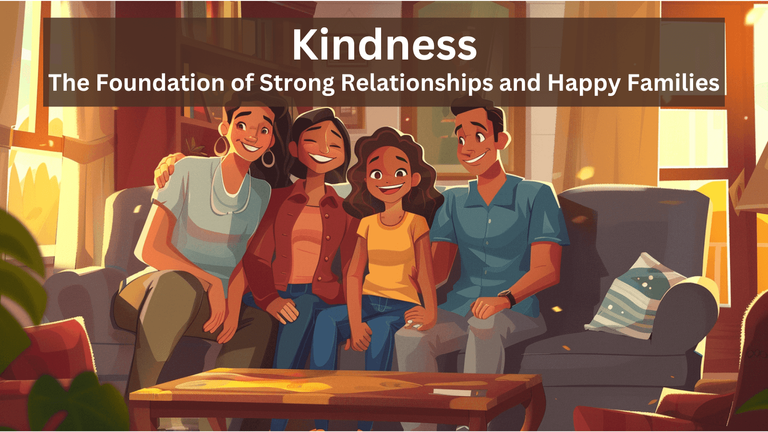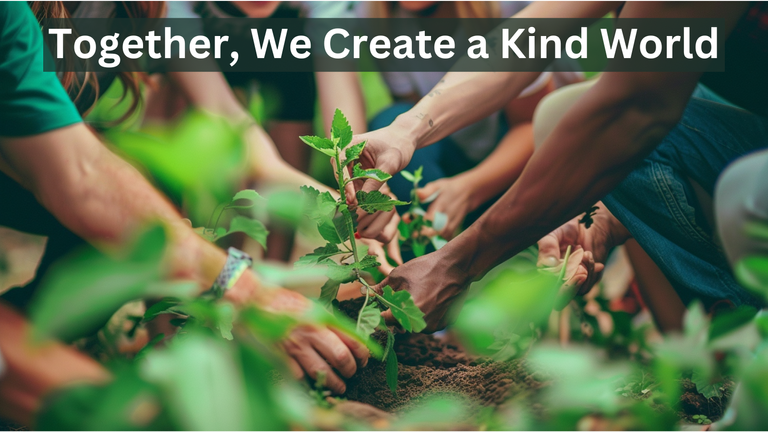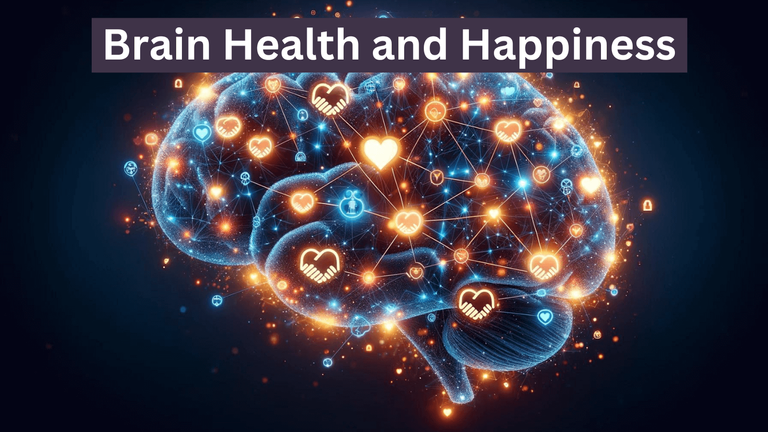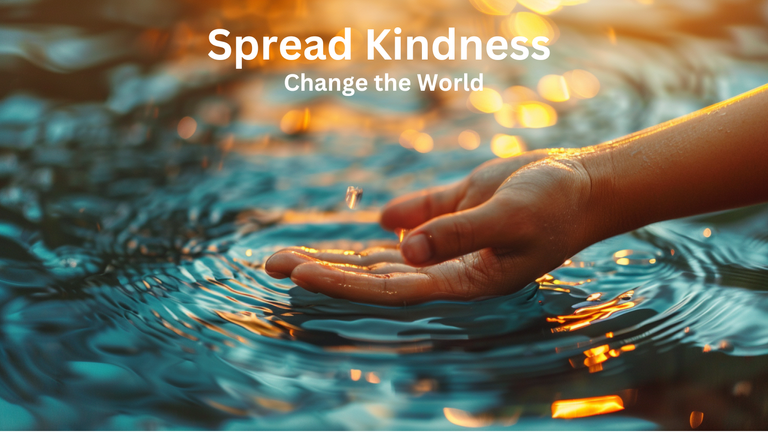Kindness Can Improve Relationships and Family Dynamics

Being kind is important for building good relationships and a happy, peaceful family. It makes us feel happier, less stressed, and helps us trust and understand each other better in the family. Prioritizing acts of kindness towards each other cultivates empathy, understanding, and trust.
This post talks about how being kind can help build strong relationships and supportive families. Let's get started.
Our Inner Selves

Kindness is crucial for fostering strong relationships and creating a harmonious family environment. It impacts our inner selves positively, boosting happiness, reducing stress, and enhancing trust and empathy within the family unit.
- Kindness Impacts Our Inner Selves: Kindness positively affects our inner selves by boosting happiness and reducing stress, making us more open, understanding, and caring. This, in turn, enhances relationships and family bonds through trust, empathy, and support, creating a harmonious and loving environment.
- Boosts Self-Confidence: Kindness boosts self-confidence by making us feel valued and accepted, which improves how we see ourselves. This positivity enhances our interactions, fostering trust, empathy, and understanding in relationships, strengthening family bonds.
- Improves Self-Esteem: Kindness boosts our self-worth by fostering positive feelings about ourselves. When we are kind, it builds trust and closeness in relationships, enhancing family bonds through mutual respect and support.
- Improves Life Satisfaction: Kindness boosts our happiness and well-being, making us feel valued and connected. This strengthens relationships as it fosters trust and empathy. In families, kindness nurtures bonds by promoting understanding and support, enhancing closeness and harmony among us.
- Lifts Our Mood: Kindness releases feel-good hormones like oxytocin and reduces stress. This positivity fosters trust and connection, deepening relationships within our families. Strengthened bonds lead to better support and understanding among us, uplifting our moods.
Psychological and Emotional Benefits of Kindness

Practicing kindness not only benefits our relationships but also positively impacts our mental and emotional well-being. It promotes better mental health, reduces anxiety, and improves mood by releasing feel-good hormones like oxytocin.
- Promotes Mental and Emotional Health: Kindness promotes better mental and emotional health by boosting feel-good hormones like oxytocin. This strengthens relationships as we feel more connected, valued, and supported, enhancing trust and communication within our family bonds.
- Reduces Anxiety: Kindness reduces anxiety by promoting positive emotions and social connections. When we show kindness, it builds trust and empathy, strengthening our relationships and family bonds through mutual support and understanding.
- Makes Us Better Listeners: Kindness fosters empathy, patience, and respect, essential for active listening. A key part of kindness is understanding the needs of others is active, empathetic listening. Practicing empathetic listening is a way to truly meet the needs of those around us.
- Promotes Cooperation: Kindness fosters trust and reciprocity, encouraging cooperation. This shared positive behavior enhances communication, builds empathy, and deepens connections within our relationships and family bonds.
- Conflict Resolution: Kindness fosters understanding, empathy, and trust in resolving conflicts. It promotes open communication, respect, and support. These actions strengthen our connections, deepen bonds, and nurture a sense of unity and togetherness within our relationships and family.
Social Implications of Kindness

Kindness extends beyond individual well-being to societal impacts. It combats prejudice, reduces loneliness, and inspires future generations to follow suit, fostering empathy, compassion, and respect.
- Combats Prejudice: Interacting kindly with individuals from marginalized groups challenges biases and enhances comprehension. Kindness cultivates empathy, understanding, and acceptance, dismantling prejudices. This fosters trust, improves communication, and strengthens bonds within our relationships and families.
- Reduces Loneliness: Kindness helps us feel connected and cared for, reducing loneliness. When we show kindness, others feel valued and supported, strengthening our relationships and family bonds. This builds trust and fosters a sense of togetherness among us.
- Creates Meaning: Kindness fosters trust, empathy, and positivity in our interactions. These qualities nurture strong relationships and family bonds by creating a supportive and loving environment where we feel valued and understood.
- Helps Us Network and Meet New People: Kindness helps us build trust, respect, and positive connections with others, making networking easier. By showing kindness, we create a supportive environment, leading to stronger relationships and closer family bonds based on understanding and empathy.
- Inspires Future Generations: Kindness sets a positive example. Children who witness kindness are more likely to replicate it, leading to potential long-term shifts in societal norms for future generations, encouraging empathy, compassion, and respect. When we practice kindness, we create a supportive environment that fosters trust and understanding, strengthening our relationships and family bonds.
Neurological Effects of Kindness

Kindness triggers the release of hormones like oxytocin, opiates, serotonin, and dopamine in our brains, promoting bonding, trust, and positive associations. It changes our brain by enhancing empathy, perspective-taking, and adaptability.
- Kindness Changes Our Brain: Kindness triggers release of feel-good hormones like oxytocin, promoting bonding and trust. This strengthens relationships by fostering empathy and connection, vital for nurturing family bonds.
- Releases Opiates, Serotonin, and Dopamine: Kindness triggers the release of opiates, serotonin, and dopamine in our brains, making us feel good. This positive feeling strengthens our bonds, as we associate those good feelings with the people who show us kindness, reinforcing our relationships and family bonds.
- Improves Perspective: Kindness helps us see things from others' viewpoints, fostering empathy and understanding. This strengthens trust and connection, enhancing our relationships and family bonds.
- **Protects Against Cynicism: **Kindness helps us see the good in others, fostering trust and understanding. This builds strong bonds in our relationships and family, creating a supportive and loving environment that shields us from cynicism.
- Enhances Adaptability: Kindness helps us adapt to different situations by promoting understanding and cooperation. This fosters trust and respect in relationships, strengthening bonds within our family, as we feel supported and valued.
Practical Implications of Kindness

Kindness influences our daily interactions by promoting mindfulness, encouraging forgiveness, and creating a sense of safety and security. It fosters creative expression and contributes to a supportive environment where trust and understanding flourish.
- Promotes Mindfulness: Kindness promotes mindfulness by fostering awareness and compassion in our actions. This mindfulness helps us better understand others' feelings, strengthening relationships. When we treat our family with kindness, it creates trust and closeness, enhancing family bonds.
- Encourages Forgiveness: Kindness fosters forgiveness by promoting empathy and understanding. This strengthens relationships by building trust and creating a supportive environment. In turn, stronger bonds in our family lead to better communication and harmony.
- Improves Sense of Safety and Security: Kindness creates trust and comfort, making us feel safe. This sense of safety strengthens our relationships as we rely on each other for support. In families, kindness fosters closeness and understanding, deepening our bonds through care and empathy.
- Encourages Creative Expression: Kindness fosters a safe environment where we feel free to express ourselves creatively. When we support each other, it builds trust and connection, strengthening our relationships and family bonds.
Conclusion

Kindness plays a crucial role in shaping strong relationships and fostering harmonious family dynamics. By practicing kindness, we can enhance trust, empathy, and understanding within our family units, leading to supportive and loving environments.
Kindness also has many positive effects on our mental and emotional well-being, such as boosting our confidence and making us happier with our lives. It can help us work together, solve problems, fight against unfair treatment, and set a good example for future generations.
Being kind not only brings families closer but also makes our society more caring and connected. Remember, kindness has a ripple effect, spreading positivity and making the world a better place for everyone 🌟🤗.
Here Are Some More Kind Ideas for You!
- Print and hand out “You Matter” Cards
- Create a "compliment jar" for a friend and fill it with kind words.
- Volunteer at a local animal rescue organization.
- Collect used eyeglasses to donate to those in need.
- Create "take what you need" tear-off tabs with positive affirmations.
- Volunteer at a local youth center.
- Sponsor a child's education in a developing country.
- Offer to carpool with a coworker to save them gas money.
- Help a friend or neighbor with their home repairs.
- Create a "free hugs" sign and stand in a busy area.
- Send a care package to a soldier overseas.
- Offer to babysit for a single parent to give them a break.
Here Are Some Ideas for Self Kindness Today or Any Day!
- Practice deep breathing exercises. Calm your mind, manage stress, & bring awareness to the present moment. ♀️️
- Forgive yourself for yesterday's missteps. Today is a new day. ✨
- Start a new book by an author you've wanted to try. Adventure awaits! 📚
- Draw or doodle, even if you don't consider yourself artistic. Just play! 🎨
- Create a vision board. Imagine your best life and let the process be fun! ✨
- Treat yourself to a restorative nap or sleep-in to recharge your energy and rejuvenate your body. 😴
- Set aside time for a digital detox day. 📵 Unplug from screens and technology, and reconnect with the present moment. Engage in activities that nourish your soul and bring you joy.
- Learn to say no. Setting boundaries is a crucial aspect of self-care. It’s okay to turn down requests or invitations that don’t serve your well-being. 🚫
- Meditate or simply be still for a few minutes. Allow your mind some quiet space. 🙏
- Indulge in a favorite hobby or activity just for fun – something you do purely for enjoyment. 🥳
#kindness #cwh #dreemport #dreemkindness #ecency #dreemforlife #hivekindness #kindnesschallenge #kindnessmatters #pob #wellness
Images created using MidJourney, Dal-E, and Canva. I hold a commercial license for each.
Such a complete masterpiece on the benefits of kindness. I liked it so much and learned also. Keep up the excellent work.
#freecompliments
Thank you so much for the encouragement.
Kindness is indeed a state of consciousness, it makes sense that meditation helps 🙂
Yes, meditation is a form of self kindness, but also because it helps us, it recharges our batteries and gives us peace. We can’t pour from an empty cup. But by filling our cups, we will be in a position to be able to pour again. As always, tyou for your thoughts and comments.
You are welcome 🌹